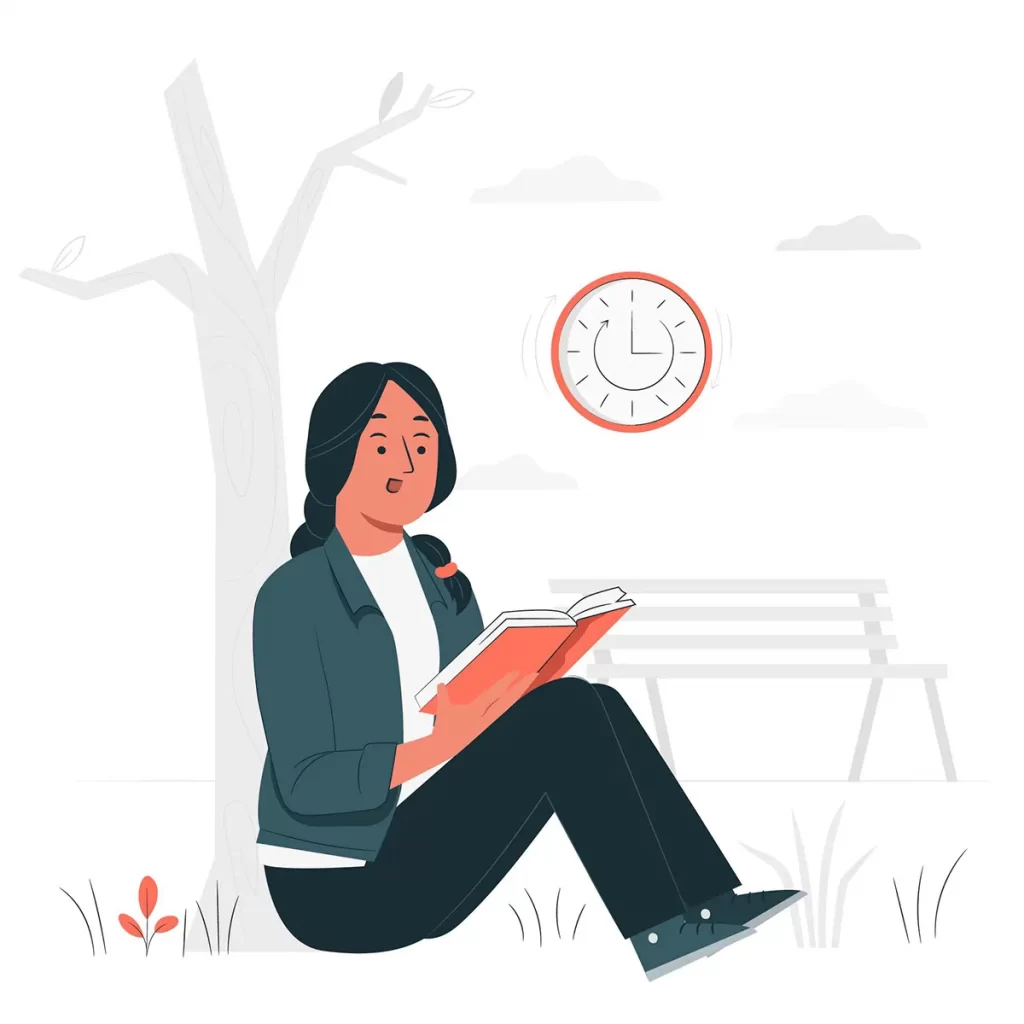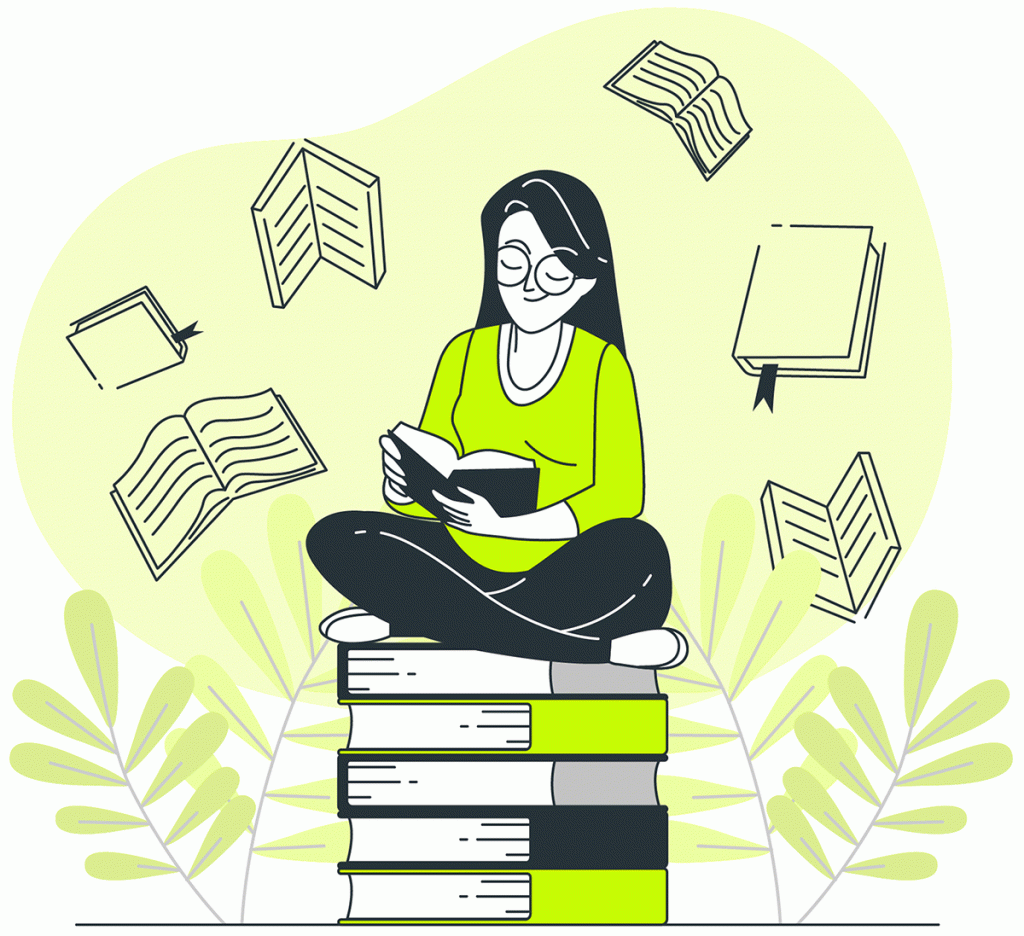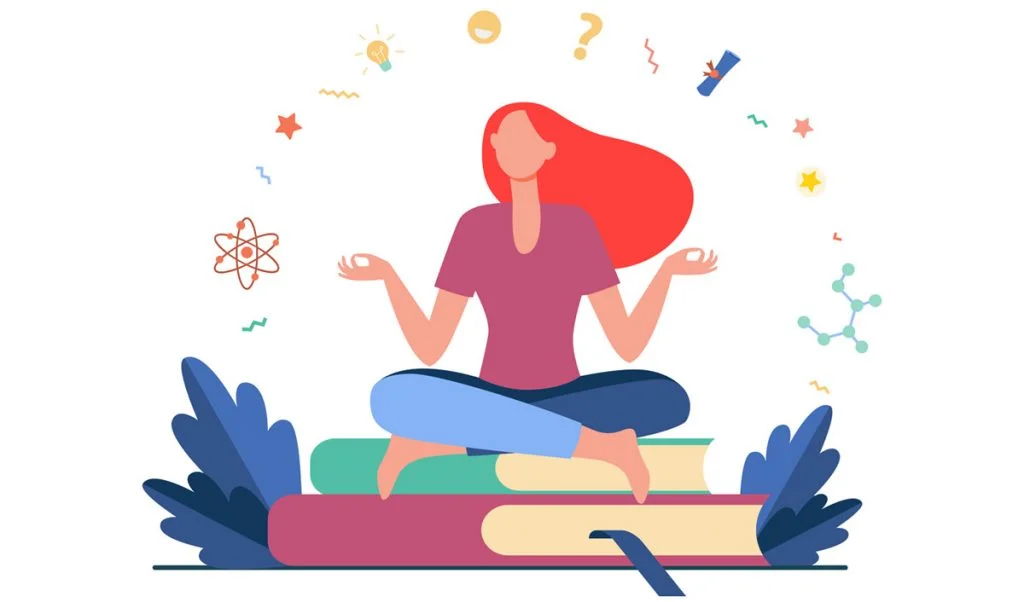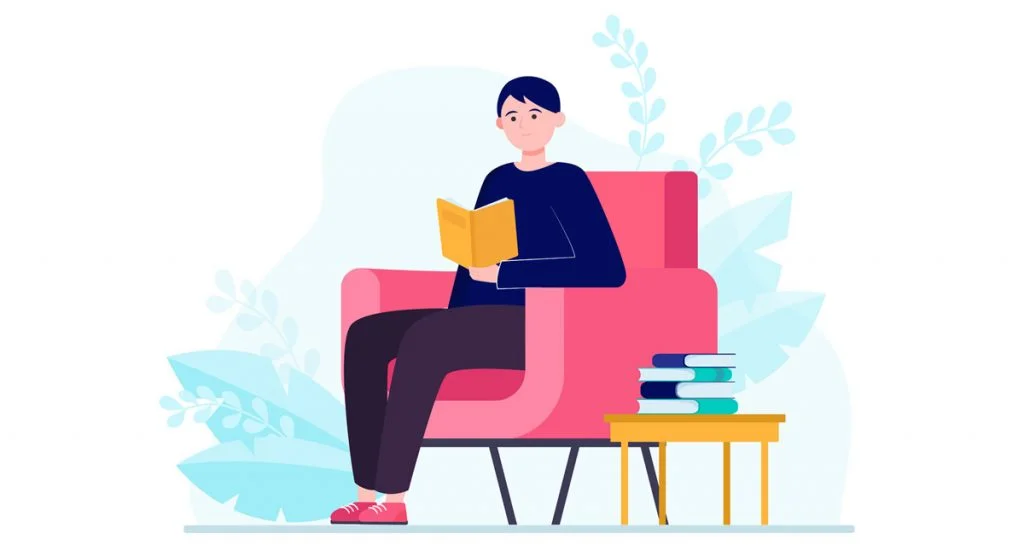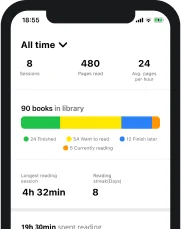Even though most of us already know that reading is a highly beneficial activity, not all of us are aware of how much its efficiency can be enhanced through a couple of simple tweaks. Whether you read for fun in order to relax, or you do it to learn, the reading experience can be improved if you know a couple of tips and tricks.
While most people completely disregard this aspect, one of the most important factors that determine the quality of your reading sessions, how quickly you read, and how much information you manage to retain, is the timing.
There are certain advantages to reading at night, just like there are also advantages to reading in the morning, depending on the reading material and the purpose of your reading session. So what is the best time to read books?
When is the best time to read books?
As much as I would love to have an exact answer to this question, the truth is that this is not an exact science. While we all do fall under certain categories, the beauty of our species is that we are all unique to a certain extent. Things that may work perfectly for you may be completely useless for the next person.
Even though the best time to read a book might differ from one person to another, there are certain rules of thumb and undeniable facts the majority of people seem to adhere to though, and that is why it’s important to understand the benefits of reading at all times of day, so we can try them all and make an informed decision whenever we are scheduling our reading sessions.
Let’s have a quick look at how reading at night, reading in the morning, and reading in the afternoon are different and what effects each time of day can have on the quality and effectiveness of our reading sessions.
Reading in the morning
The most relevant aspect to take into account about reading in the morning is the fact that mornings are usually when we are most rested during the day. Since our batteries have just been recharged after a good night’s sleep, mornings are usually the best time to read and understand.
We are very likely to retain more information when reading in the morning as well, also because of the fact that our brain is usually energized after just having woken up.
Another positive aspect of morning reading is that it can give us a feeling of accomplishment to start our day. Having already done our daily reading by 10 am in the morning for example can have a positive effect on how the rest of the day is going.
But then again, since we are all so different, some of us who are not morning people at all will find it completely impossible to get anything done in the morning. And that is perfectly fine, we are all built differently and each of us has to learn what works best for us.
Reading in the afternoon
While often disregarded by most people for several understandable reasons, reading in the afternoon also comes with a series of advantages. The reason why most people do their reading in the mornings and evenings and very few choose the afternoon has a lot to do with the fact that afternoons are usually spent in different ways: at work, getting chores done, doing shopping, and other things. Very few of us are actually at home, having some free time to read.
Those who do manage to read in the afternoons enjoy the benefit of their brains working somewhat differently than in the morning and evenings and integrating new information with what we already know is usually a smoother and more efficient process. Afternoons are great for going more in-depth with our learning and accumulating additional information, and it’s also worth noting that the natural light is at its peak capacity in the afternoons.
Reading at night
Reading at night is not only beneficial for a good night’s sleep. Even though it does improve the quality of sleep, how much rest we actually get, and how quickly we fall asleep, reading at night can also turn out to be a great way to learn and retain information.
One thing to note is that usually, at night, there are much fewer distractions that can interrupt our reading sessions. Our phone rings less often, the kids are usually in bed sleeping, and there is in general a lot less to get done late in the evening. We use the evenings to unwind, relax after a long day, and prepare for a hopefully restful night of sleep.
Now, studies suggest that learning in our sleep is actually far from impossible. Not only that, but since our brains are extremely active during our sleep, a process of memory consolidation does happen behind the scenes whenever we get some shut-eye. That means that the information we process right before going to sleep is actually very likely to be remembered and the neuronal connections that form our memories are going to be quite strong.
Give Your Reading Experience
An Extra Boost With Basmo
Track the books you read, monitor the time you spend reading and keep notes on your reading habits and how it makes you feel. You can set yourself targets for the time you spend reading and you can get notified whenever you’re behind on your reading time.
What is the best time to read at night?
If reading at night seems to be working the best for you and your personal goals, then you should know that there are also some other choices you can make to enhance the experience.
First of all, finding the best time to read at night has a lot to do with how your days are usually organized and what your daily schedule looks like in general. Ideally, you should have a window of at least one hour of free time before going to bed in order to enjoy a nice reading session before sleep.
For evening reading sessions, the best time to read a book is generally between 6 and 9 pm. That’s because it is the timeframe of the day we usually use to unwind and breathe, and our mind starts to slow down a bit after a hectic day. We are not yet tired enough to affect our ability to understand what we read, yet it’s close enough to the time we go to bed so that our memories consolidate effectively during sleep.
And, of course, reading in bed right before falling asleep is also an option. This will make us fall asleep quicker, and more relaxed, and it will make us sleep better.
What is the best time to read in the morning?
Finding the best time to read books is not going to be much of a challenge if you are generally a morning person. If you enjoy being active and doing things right after you wake up, you are very likely to enjoy a couple of very satisfying reading sessions.
The general rule of thumb in regards to morning reading sessions is to start them no more than 2 hours after you wake up. Depending on the time you wake up in the morning, any reading session between 4 and 7 am, or even up to 8 or 9 am is going to be at your peak cognitive status of the day. Your mind will be well-rested, and you will find it a lot easier to understand new concepts and retain the information you are reading.
What is the best time to read for exams (and study in general)?
Finding the best time to read and study, with a clear intention to retain as much information as possible, requires a bit of mindfulness and a certain level of awareness regarding your own performances and preferences.
The general rule of thumb is that learning comes a lot easier in the morning than later in the day, but the truth is actually a little different. It depends on each person in particular, and different times of day come with different benefits for your learning attempt.
Here’s how your reading sessions for learning are differently efficient during the day.
- Morning reading sessions: these are perfect for learning new things, and for understanding new concepts. That’s because our mind is well-rested and our brain will work at its peak capacity both in terms of understanding and information retention.
- Evening reading sessions: our brain works hard while we sleep and it uses most of our off-time to build, consolidate, and strengthen memories. That’s why evening reading sessions are usually ideal for tasks that require us to memorize large amounts of data (historical events, for example, the years and locations of certain battles, etc.). Even though the general belief has been for a long while that trying to learn at night is a waste of time, studies have shown that our memorization abilities are actually better if we learn right before going to bed.
- Afternoon reading sessions: while most of us are simply unable to do any kind of reading in the afternoons, learning during this time of day has a couple of benefits. The most notable one is the fact that our brain will work a lot better when going deeper into a certain subject that we’ve already studied before. Our brain builds additional knowledge on top of the learning we already did, a lot more efficiently in the afternoon.
So, to sum up, learning can be done at any time of day, but for maximum efficiency, things should be divided as follows: learning new things that require some logic and understanding should be done in the morning, and in-depth learning should be done in the afternoon, and tasks that require word-for-word memorization are best performed in evening reading sessions.
How to make sure you always read at the right time of day
Determining what is the best time to read a book is one thing, but actually doing it the right way is going to be a lot more difficult than it sounds. That’s because our lives are generally quite hectic these days and our free time is very limited. Distractions are everywhere, and mindless and engaging entertainment is available everywhere, at any time, and from any device.
Making the best of your reading experience and actually optimizing the way you read requires some determination, a good mindset, and a good motivation to implement healthy reading habits.
The best way to start working on the way you read in order to improve your performance and take full advantage of the benefits is to start using a reading tracking app like Basmo.
How can Basmo help you develop reading habits? It’s simple:
Basmo will allow you to set daily or yearly reading goals
Having the right motivation and knowing exactly what you want to achieve is going to be the first step of your journey toward becoming a better reader.
Basmo gives you the option to set a daily goal for the time you spend reading each day and a yearly goal for the total number of books you want to read. It will also track your progress towards meeting your goals, which will make it easier for you to stay motivated.
Basmo will help you create a reading schedule
Probably the most relevant feature Basmo has to offer in the context of finding the best time to read and sticking to it is the scheduling feature.
This helps you set different times of the day every day of the week for your reading sessions, which means that you can schedule them however you see fit, in order to match your daily routine and maximize the learning process.
Not only that, but you will also be reminded of your upcoming reading sessions through gentle notifications, and this way you will never forget to do your scheduled reading.
Basmo has all the relevant statistics
The more you know, the better. Becoming a more efficient reader takes a lot of insight, and Basmo can be of great help.
If you’re curious to see what times of day are best for your reading sessions, you can simply use the statistics Basmo records after each reading session and compared how much reading you get done in the same amount of time at different times during the day.
Final thoughts
As much as this would seemingly go against everything that’s been written above, the harsh truth is that the best time to read books is whenever you have the time and whenever you feel like it.
Even though the performance will be different depending on the time of day, missing an opportunity to do some reading just because it is not the ideal time of day for that would be a huge mistake. Reaching your maximum potential will require you to take these things into account, but reading, in general, is a great activity regardless of the time of day.
